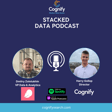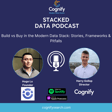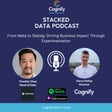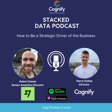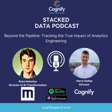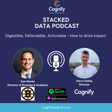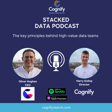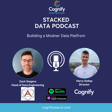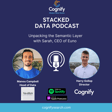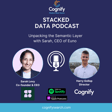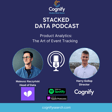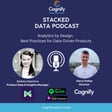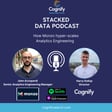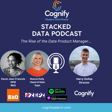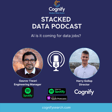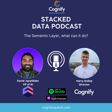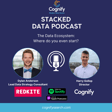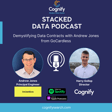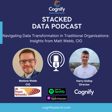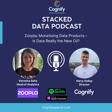
009 - Data Driven Disruption: Carbon Underwriting's Modern Approach to Insurance
In this episode on Stacked Data Podcast, we explored how the team at Carbon Underwriting use the modern data stack to innovate and revolutionized the way they operate in a the traditional industry of Insurance, allowing them to swiftly deliver top-tier data products that can exponentially improve work in the insurance space.
We dive into there leading data product “Graphene”, taking an old school Excel reporting, consolidating this all in a common data model and surfacing an analytics layer on top! This allows there underwriters to deliver work at a much faster rate.
This episode is all about how to build teams, infrastructure and processes to create data products that are truly impactful.
Key Takeaways:
Start with your customer: Work closely with your stakeholders to understand their pain points and mission, from here you can start to design a data product that can enable them.
The power of leveraging the modern data stack: The use of cutting-edge technology has transformed there data infrastructure, enabling faster, more agile operations.
Accelerating product delivery: How this modern approach has supercharged our ability to bring data products to the market at an unprecedented pace.
Overcoming challenges with efficiency: We discussed the hurdles faced and the strategies employed by the team to harness the potential of the modern data stack effectively.
